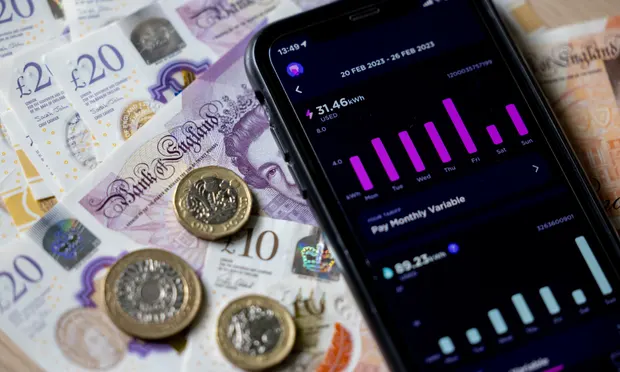Britain’s energy suppliers are expecting the government to U-turn on a planned cut to energy support for households – but have been told by officials to prepare two sets of bills for next month.
The chancellor, Jeremy Hunt, is under pressure to extend the energy price guarantee, a government policy that aims to limit annual household bills to £2,500 until the end of March.
Hunt, who is due to announce the budget on 15 March, plans to make the guarantee less generous from April, raising it to £3,000. One-off support of £400 which was available last year will also end in April.
Energy suppliers have been contacted by government officials with two sets of rates for units of gas and electricity – depending on whether Hunt decides to extend the support.
Treasury sources confirmed that suppliers had been asked to prepare for either decision.
Suppliers are expected to give customers a month’s notice before changing their tariff, meaning if Hunt waits until the budget to make a decision it could have caused problems.
However, industry sources said the regulator, Ofgem, has “given us some leeway on dates”.
“If a decision doesn’t come until mid-March, that will be a challenge but the dates are not hard and fast and we understand the regulator would allow that.”
Pressure has been mounting on Hunt to reverse the planned cut to support since wholesale gas prices began falling sharply earlier this year. An increase in gas prices linked to the war in Ukraine pushed up bills last year, forcing the government to intervene to subsidise bills.
The energy secretary, Grant Shapps, has said he was “very sympathetic” to calls for the government to cancel the planned cut in support.
Consumer champion Martin Lewis, who has been campaigning for Hunt to reverse his decision, said on Friday there was an 85% chance that the government would bow to pressure. “I wouldn’t say it’s a done deal,” he added .
Government figures this week also showed more than 2m households in England fell into fuel poverty last year.
The number of households in England who spend more than 10% of their income, excluding housing costs, on energy has increased from 4.93m households in 2021 to 7.39m in 2022.



